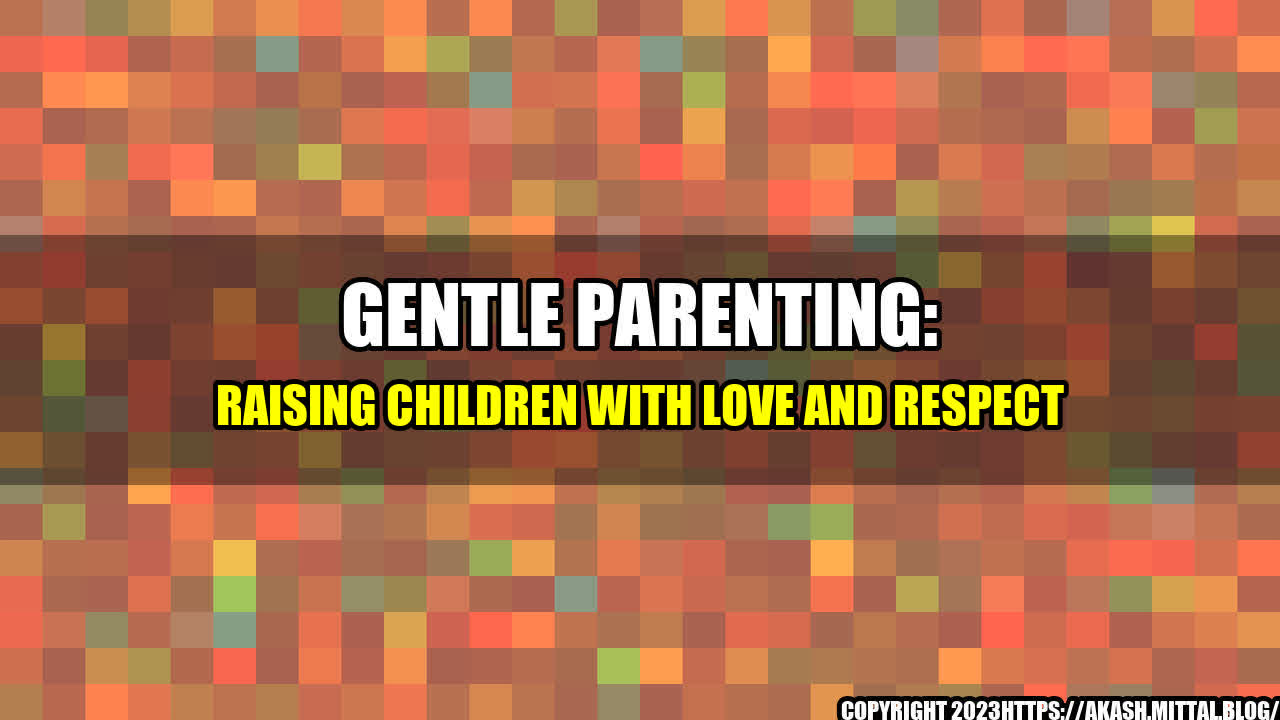
Once upon a time, a mother was struggling to put her toddler to sleep. The child was crying and throwing a tantrum, and the mother felt helpless and frustrated. She tried everything she knew, from singing lullabies to offering milk, but nothing seemed to work. Suddenly, she remembered a technique she had learned from a gentle parenting book, and decided to give it a try. She sat on the edge of the bed, hugged her child tightly, and whispered softly in her ear: "I love you. I understand that you're upset. Let's take a deep breath together and calm down." To her surprise, the child stopped crying and snuggled closer to her mother. They took a few deep breaths, and soon, the toddler was fast asleep.
Gentle parenting is a parenting philosophy that emphasizes the use of empathy, respect, and communication to raise children in a nurturing, supportive, and non-punitive way. It recognizes children as unique individuals with their own thoughts, feelings, and needs, and aims to build a strong emotional bond between them and their caregivers. The goal of gentle parenting is to create a safe, loving, and secure environment that fosters the child's physical, emotional, and cognitive development.
Here are some of the key techniques of gentle parenting:
Gentle parenting regards discipline as a teaching opportunity, rather than a punishment. It emphasizes the use of natural consequences, logical consequences, and problem-solving strategies to help children learn from their mistakes and make better choices in the future. Gentle parenting also avoids the use of physical punishment, verbal abuse, or shaming, as these can damage the child's self-esteem and trust.
For example, if a child throws a toy at the wall and breaks it, the gentle parenting approach would be to explain calmly and empathetically why this behavior is not acceptable, and ask the child to help clean up the mess and find a way to fix or replace the toy. This approach reinforces the child's responsibility and respect for others' belongings, without causing fear or shame.
Research shows that gentle parenting can have a range of benefits for children, including:
Moreover, gentle parenting can also have benefits for caregivers, including:
In summary, gentle parenting is a parenting philosophy that emphasizes the use of empathy, respect, and communication to raise children in a nurturing, supportive, and non-punitive way. By using techniques such as empathetic listening, positive reinforcement, breathing exercises, active listening, and boundary-setting, parents can create a safe, loving, and secure environment that fosters their child's physical, emotional, and cognitive development. Gentle parenting can have benefits for both children and caregivers, and can help to build a stronger, healthier, and happier family.
Curated by Team Akash.Mittal.Blog
Share on Twitter Share on LinkedIn